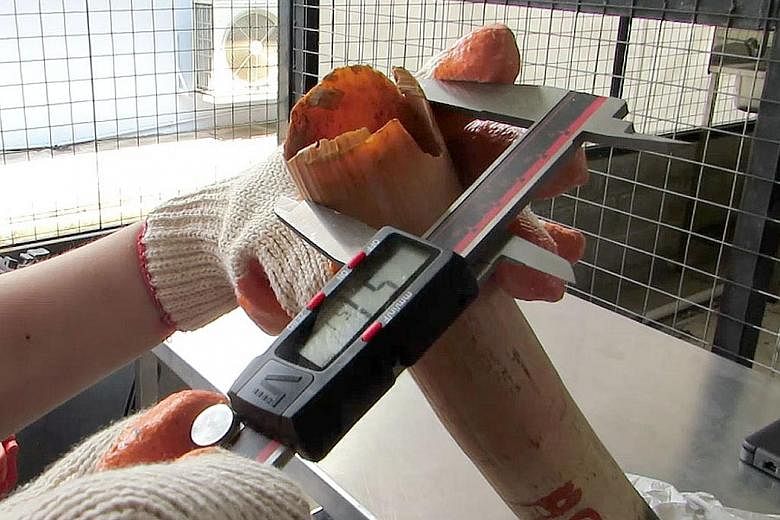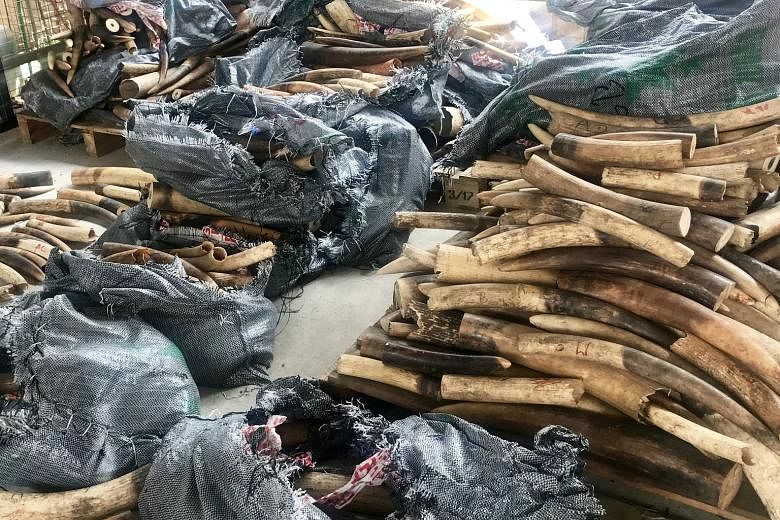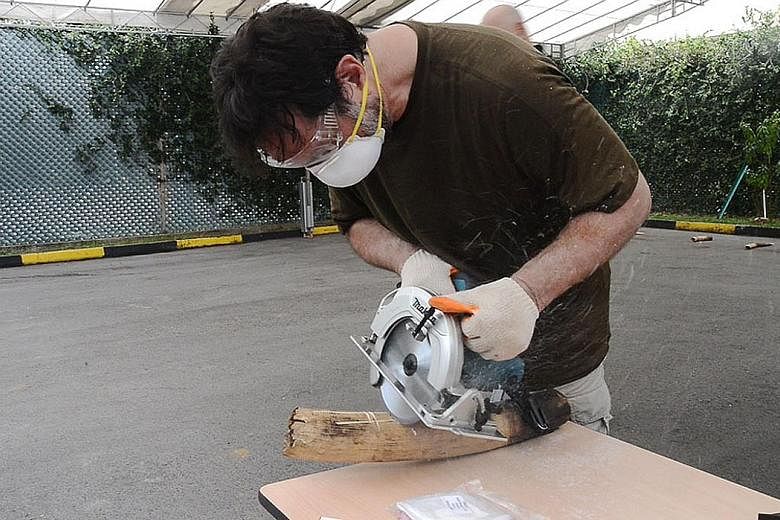The Agri-Food and Veterinary Authority (AVA) is working with experts in the United States to track down the source of some 3,500kg of illegal ivory worth about US$2.5 million (S$3.32 million) seized here after it was shipped from Nigeria.
The ivory was confiscated in March, en route to Vietnam. "As part of our investigations, AVA recently collaborated with Dr Sam Wasser, his team from the University of Washington, and the United States Homeland Security Investigations, to conduct DNA analysis of samples from the latest seizure," a spokesman for AVA said yesterday.
Dr Wasser, a conservation biologist, pioneered the scientific method of extracting DNA from ivory tusks in 1998.
Among other things, an analysis of DNA samples can pinpoint where the elephant was poached and reveal potential linkages with other seizures overseas, AVA said.
As part of the two-day sampling process last month, the tusks were measured and grouped according to their characteristics. Once sorted, specific ivory pieces were identified for sampling. A small piece of ivory was cut from each sample and taken to Dr Wasser's US lab for DNA tests, which are ongoing, said AVA.
Dr Anna Wong, director of AVA's import and export regulation department, said while Singapore is neither the source nor destination country for illegal ivory, the trade is transnational in nature. Singapore has long been identified by environmental groups monitoring the illegal wildlife trade as a transshipment hub through which exotic animals and their parts often come through.
Added Dr Wong: "The findings can assist law-enforcement agencies in source countries to focus their enforcement efforts. We are confident that our efforts will contribute to the global fight against illegal ivory trade."
For fast enforcement action, Dr Wasser said, it is important that seized ivory gets sampled quickly. "By getting the information quick, we can have a greater effect in enforcement...If we are brought in earlier, we can help enforcement agencies build a better prosecution."
His working relationship with Singapore authorities goes back some 10 years. The Republic, he said, was the first country he worked with to conduct DNA analysis of seized ivory, and is by far the most responsive he has collaborated with.
Said Dr Wasser: "The ivory we are sampling now was seized 1½ months ago. That's the shortest time we've ever had between when the seizure was made and us getting to sample it." In other cases, countries do not release seized ivory for sampling until up to two years later, he added.
Singapore follows the Convention on International Trade in Endangered Species of Wild Fauna and Flora (Cites). Elephants are a protected species under Cites and international trade in elephant ivory is prohibited.
US Immigration and Customs Enforcement Homeland Security Investigations regional attache Calvin Webb said collaborations such as that between AVA and the University of Washington, coupled with the use of technology and investigative techniques, can help with enforcement. He said: "Those involved in the thefts which led to this past March's historic poached ivory seizure, as well as others involved in this criminal act, will be held accountable for their actions."
While the agency adopts measures such as working with international agencies like Interpol, and stepping up enforcement at checkpoints, the public has an important role to play as well, AVA said yesterday. This includes not buying illegal wildlife or their parts and products, as well as sending alerts to the authorities for suspected cases via AVA's online feedback form or by calling 6805-2992.




